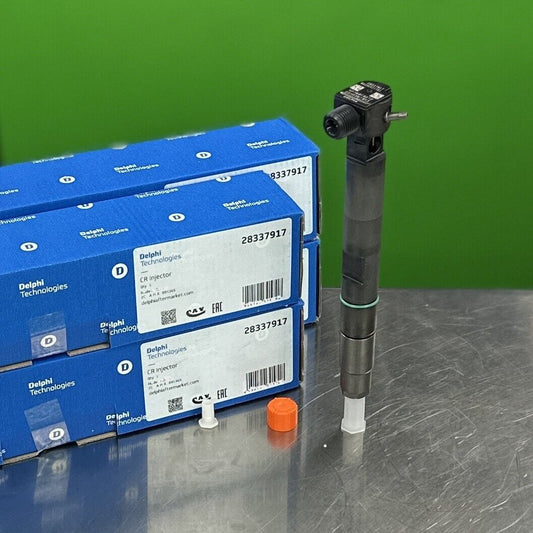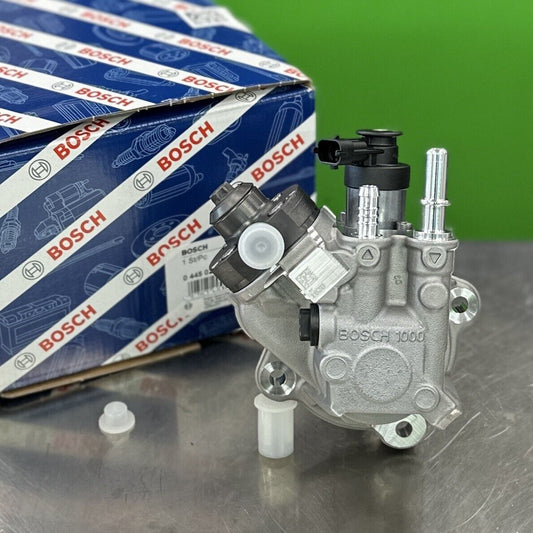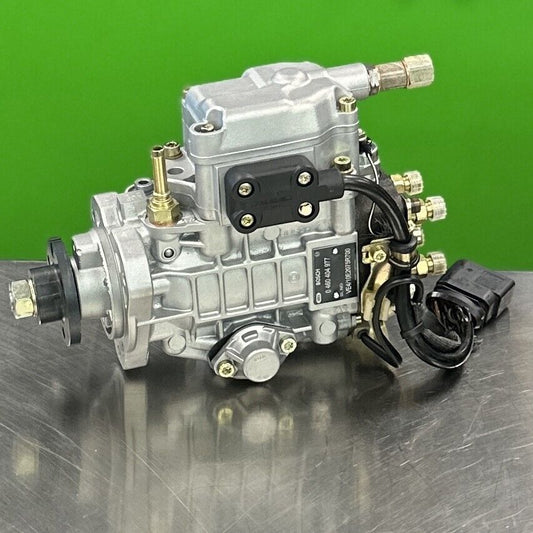How Diesel Engines Are Evolving with Emission Standards in Illinois
When it comes to the evolution of diesel engines in Illinois, the impact of emission standards cannot be overlooked. These standards, set by regulatory bodies, play a crucial role in reducing harmful pollutants emitted by diesel engines, promoting a cleaner and healthier environment for all. Manufacturers are constantly adapting to these standards, pushing the boundaries of technology and innovation to meet regulatory requirements.
Introduction to Emission Standards
When it comes to the , it's crucial to understand the significance of these regulations in Illinois. Emission standards play a vital role in reducing harmful pollutants emitted by diesel engines, thereby improving air quality and public health. Regulatory bodies in Illinois have set specific guidelines and limits on the amount of pollutants that can be released into the atmosphere, aiming to create a cleaner and healthier environment for all residents.
These standards are not arbitrary; they are based on extensive research and scientific data that highlight the detrimental effects of diesel emissions on both the environment and human health. By enforcing these emission standards, authorities are taking proactive measures to mitigate the impact of diesel engines on air quality and combat issues such as smog, acid rain, and respiratory illnesses caused by pollution.
Manufacturers and engineers in the automotive industry are constantly striving to meet and exceed these emission standards through technological advancements in diesel engines. Innovations such as particulate filters, exhaust gas recirculation systems, and selective catalytic reduction have revolutionized the way diesel engines operate, significantly reducing their environmental footprint without compromising performance.
Furthermore, the adoption of clean diesel technologies has become increasingly prevalent in Illinois and beyond. These technologies not only help diesel engines comply with emission regulations but also enhance their overall efficiency and longevity. By incorporating advanced emission control systems, vehicles can operate more cleanly and sustainably, benefiting both the environment and consumers.
Technological Advancements in Diesel Engines
Technological advancements in diesel engines have revolutionized the way these powerful machines operate in Illinois. With the ever-increasing focus on reducing harmful emissions, manufacturers are investing heavily in innovative solutions to meet stringent regulatory requirements while ensuring optimal performance and efficiency.
One of the key advancements in diesel engine technology is the implementation of particulate filters, which are designed to trap and remove harmful particles from the exhaust gases. These filters play a crucial role in reducing pollutants emitted into the atmosphere, thereby contributing to cleaner air quality in Illinois.
Another significant development is the adoption of selective catalytic reduction (SCR) systems, which use a chemical reaction to convert harmful nitrogen oxides into harmless nitrogen and water. By integrating SCR technology into diesel engines, manufacturers can effectively reduce emissions without compromising on power output or fuel efficiency.
Moreover, the use of advanced fuel injection systems has greatly improved the combustion process in diesel engines, resulting in lower emissions and increased fuel efficiency. By precisely controlling the injection of fuel into the combustion chamber, these systems optimize performance while minimizing environmental impact.
Furthermore, advancements in engine design and materials have led to more durable and efficient diesel engines that can withstand the demands of modern emission standards. From improved cooling systems to enhanced turbocharging technology, manufacturers are constantly pushing the boundaries of innovation to meet the evolving regulatory landscape.
In conclusion, the technological advancements in diesel engines in Illinois are paving the way for a cleaner and more sustainable future. By embracing innovative solutions and staying ahead of emission standards, manufacturers are not only reducing environmental impact but also ensuring that diesel engines remain a reliable and efficient power source for years to come.
Adoption of Clean Diesel Technologies
The adoption of clean diesel technologies marks a significant shift in the evolution of diesel engines in Illinois. Manufacturers are increasingly embracing advanced solutions such as particulate filters and selective catalytic reduction systems to meet stringent emission regulations. These technologies play a crucial role in reducing harmful pollutants emitted by diesel engines, contributing to a cleaner and healthier environment for all residents of Illinois.
Particulate filters are designed to capture and remove soot particles from the exhaust gases produced by diesel engines. By trapping these particles, particulate filters help in minimizing the release of harmful substances into the atmosphere. This technology not only aids in meeting emission standards but also enhances the overall air quality in urban areas where diesel vehicles operate frequently.
Similarly, selective catalytic reduction systems utilize a catalyst to convert harmful nitrogen oxides into less harmful substances like nitrogen and water vapor. This process helps in significantly reducing the emissions of nitrogen oxides, which are known to contribute to air pollution and respiratory issues. The adoption of such clean diesel technologies reflects a proactive approach by manufacturers towards environmental sustainability and regulatory compliance.
Impact on Vehicle Performance and Fuel Efficiency
When it comes to diesel engines in Illinois, the impact of emission standards on vehicle performance and fuel efficiency is a crucial aspect that manufacturers and consumers need to consider. The integration of emission control technologies, such as particulate filters and selective catalytic reduction systems, plays a significant role in shaping how diesel engines operate in terms of performance and fuel efficiency. These technologies are designed to reduce harmful pollutants emitted by diesel engines, ensuring compliance with stringent emission standards set by regulatory bodies in Illinois.
One of the key effects of these emission control technologies on vehicle performance is the potential reduction in power output. While these technologies are essential for minimizing emissions, they can also lead to a slight decrease in horsepower and torque compared to older diesel engines. Manufacturers are constantly innovating to strike a balance between meeting emission requirements and maintaining satisfactory performance levels. This delicate equilibrium is crucial in ensuring that diesel vehicles remain competitive in the market while meeting environmental obligations.
Moreover, the integration of emission control systems can influence fuel efficiency in diesel engines. The additional components required for emissions reduction, such as catalytic converters and exhaust gas recirculation systems, can impact the overall fuel consumption of the vehicle. However, advancements in engine technology aim to mitigate these effects by optimizing fuel combustion and improving overall engine efficiency. Manufacturers are continuously exploring ways to enhance fuel efficiency without compromising performance, offering consumers a balance between eco-friendliness and cost-effectiveness.
Furthermore, the operation of diesel engines in Illinois is not only about meeting emission standards but also about delivering a satisfying driving experience. The implementation of emission control technologies should not hinder the responsiveness and agility of diesel vehicles. Manufacturers are investing in research and development to ensure that diesel engines remain reliable, powerful, and efficient while adhering to strict emission regulations. The goal is to provide consumers with environmentally friendly vehicles that do not compromise on performance or fuel efficiency.
Future Trends and Challenges
As diesel engines continue to evolve in Illinois to meet stringent emission standards, manufacturers are facing both exciting future trends and significant challenges. One of the key trends shaping the future of diesel engines is the increasing focus on electrification and hybridization. Manufacturers are exploring ways to integrate electric powertrains with diesel engines to create more efficient and environmentally friendly vehicles. This trend not only helps reduce emissions but also enhances overall performance and fuel efficiency.
Another important trend in diesel engine development is the emphasis on predictive maintenance and advanced diagnostics. By incorporating sensors and data analytics, manufacturers can monitor engine performance in real-time, identify potential issues before they escalate, and optimize maintenance schedules. This proactive approach not only improves reliability but also reduces downtime and operational costs.
However, alongside these promising trends, manufacturers are also encountering significant challenges in meeting evolving emission standards. One of the primary challenges is the cost associated with implementing advanced emission control technologies. Developing and integrating complex systems such as selective catalytic reduction and exhaust gas recirculation requires substantial investment, which can impact the overall affordability of diesel vehicles.
Moreover, manufacturers are also facing regulatory uncertainties and varying standards across different regions. Adapting diesel engines to comply with a diverse range of emission regulations poses a logistical and technical challenge for manufacturers, requiring them to navigate a complex landscape of compliance requirements.
In addition, the shift towards alternative fuels and power sources presents a challenge for traditional diesel engine manufacturers. With the rise of electric vehicles and renewable energy sources, manufacturers must innovate and diversify their product offerings to stay competitive in a rapidly changing market.
Overall, the future of diesel engines in Illinois is marked by both exciting opportunities and formidable challenges. By embracing technological advancements, addressing regulatory complexities, and fostering innovation, manufacturers can navigate the evolving landscape of emission standards and continue to drive progress in sustainable transportation.
Frequently Asked Questions
-
What are emission standards?
Emission standards are regulations set by governing bodies to limit the amount of pollutants released into the environment by vehicles, machinery, and industrial processes. These standards aim to reduce harmful emissions such as nitrogen oxides, particulate matter, and carbon monoxide.
-
How do emission standards impact diesel engines?
Emission standards have a significant impact on diesel engines as manufacturers are required to develop technologies that reduce harmful emissions while maintaining performance and efficiency. This has led to the adoption of clean diesel technologies and innovative solutions to meet regulatory requirements.
-
What are clean diesel technologies?
Clean diesel technologies include particulate filters, selective catalytic reduction systems, and exhaust gas recirculation systems. These technologies help reduce pollutants emitted by diesel engines, making them more environmentally friendly and compliant with emission standards.
-
How do emission control technologies affect vehicle performance?
The integration of emission control technologies can impact vehicle performance by altering engine dynamics and fuel combustion processes. While these technologies may slightly reduce power output, they contribute to cleaner emissions and improved fuel efficiency in diesel engines.
-
What are the future trends in diesel engine development?
Future trends in diesel engine development focus on further reducing emissions through advanced technologies such as hybridization, electrification, and improved after-treatment systems. Manufacturers are also exploring alternative fuels and engine designs to meet evolving emission standards.



